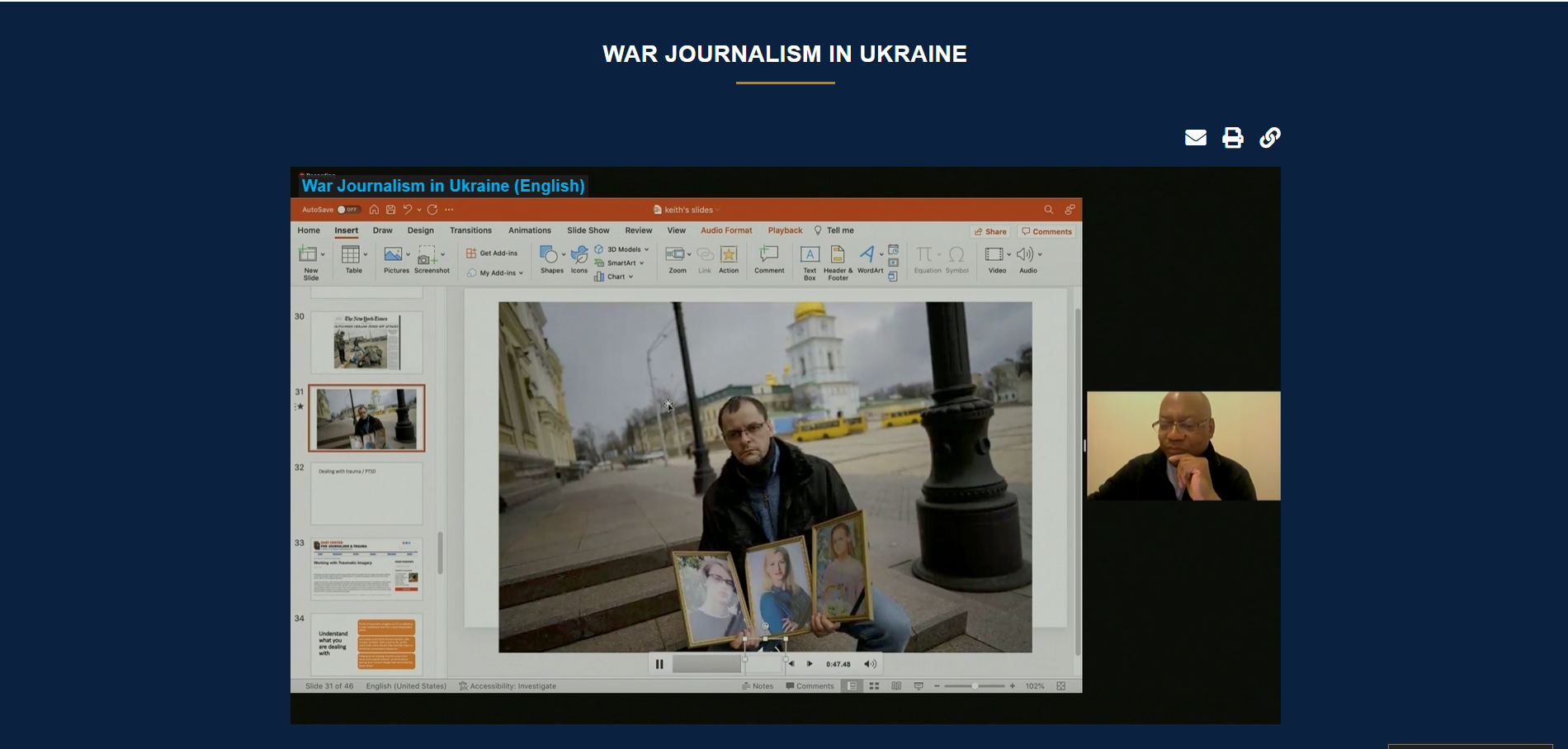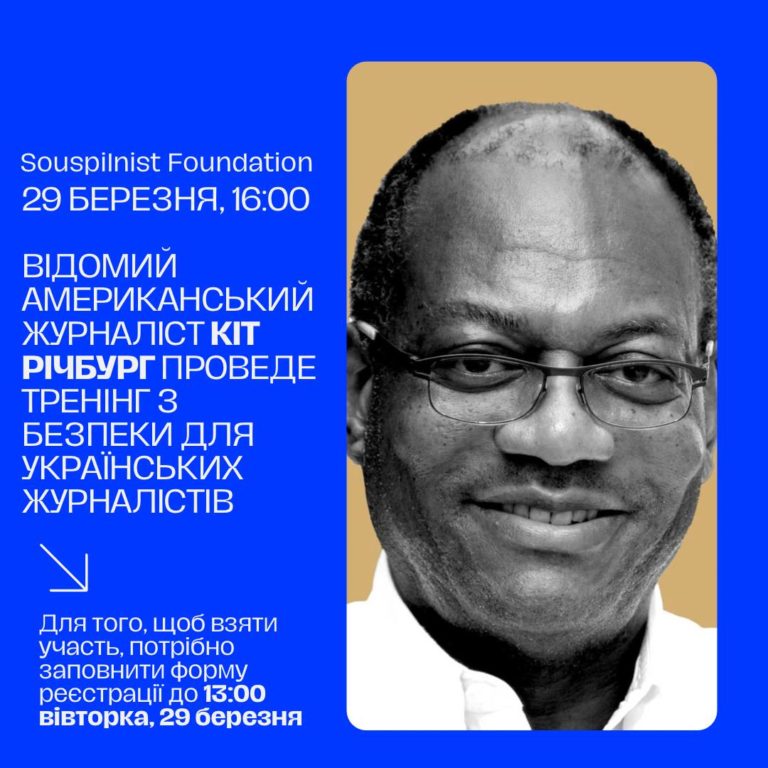U.S. journalist Keith Richburg, Director of the Journalism and Media Studies Centre at the University of Hong Kong, reported on the war in Somali, Afghanistan, Iraq, the genocide in Rwanda, and the Arab-Israeli conflict. He was a finalist for the Pulitzer Prize for his reporting from Africa.
On March 29, the U.S. speaker conducted training for Ukrainian journalists.
Media expert Yuliia Hrytsenko moderated the event.

Below are the main points of Keith Richburg’s training session regarding the principles of journalists’ work during military conflicts.
Telling the truth is our duty.
It is difficult to be objective when reporting on the war in your own country. It is very hard emotionally because it concerns your loved ones, friends, and neighbors. However, it is our duty to be truthful and impartial. Whose side are you on? The truth’s.
Always ask yourself: Where do I get information from? The source must be named, authoritative, and independent. Engage your correspondents on the ground.
Do not be guided by what sounds pleasant. “Russia’s losing,” “their attacks have stalled,” and “Putin couldn’t seize Kyiv.” There could be speculation. How do we know Russia’s plans? Maybe that is their tactic: ruining Ukrainian cities. Like they did in Grozny (Chechnya’s capital was destroyed by bombing during the Second Chechen war).
Fact-check the information.
The digital world provides a lot of opportunities. You need to verify the information thoroughly. If you are in the field, send the files to your newsroom, let your colleagues do it. Pay no mind that someone posted the story online earlier. It is better to spend more time on fact-checking before publishing it.
CNN has several principles regarding fact-checking videos’ authenticity:
- make sure the footage is recent;
- use geolocation to see where it was made;
- juxtapose different frames to make sure the filming was done in the same place;
- compare the video sequence with the location’s satellite map.
Pay attention to safety measures.
Be careful. No story is worth your life.
Journalists can be captured. Do not keep photos or videos on your phone. Delete the face recognition app. Make sure you have the medicines you need and a change of clothes. Keep in touch with several friends daily. Keep important phone numbers separate, e.g., written on your arm.
Besides physical safety, you must take care of your emotional state. Ukrainian journalists witness horrible atrocities every day. They may develop PTSD. Do not pretend it does not concern you. You need to understand how you really feel. Your mental health is as important as your physical health.
Before publishing a photo of a dead person, find out who they were.
A journalist from The New York Times who took a picture of the family killed by an explosion in a Ukrainian city found the father in this family, asking him to tell his story and permit her to use the photo. It was published on the front page.
Remain humane.
Put down your camera if you can give others a hand.
When state or military authorities request that you not post pictures and videos of the explosion scenes, abide by these rules. Your posts could be harmful. You can write a story or a book about it later.
You cannot come up with a microphone and start talking to someone who experienced terrible events.
They will have to experience what happened to them again. Find a safe place where you can talk. Spend some time with them, have a chat. Tell them their story is precious and what happened to them is important. Show that you care. You can offer your help.
Watch the recording of the meeting:
Keith B. Richburg is a Hong Kong-based journalism professor and former correspondent for The Washington Post. He served as bureau chief in Paris, Hong Kong, Jakarta, Nairobi, Manila, Beijing, Shanghai, and New York City. He is currently the Post’s Global Opinions columnist.
He won the George Polk Award, an award established in 1949 in memory of George Polk, a CBS correspondent murdered in 1948 while covering the Greek Civil War. He also won the National Association of Black Journalists Award and was a finalist for the Pulitzer Prize for his reporting from Africa. He is the author of the book, Out of America: A Black Man Confronts Africa.
He is a regular speaker and moderator at academic conferences and media panels worldwide and was recently a featured speaker in Ukraine under the U.S. Embassy Speakers’ Program.
Souspilnist Foundation organized the event with the support of the National Media Association.
